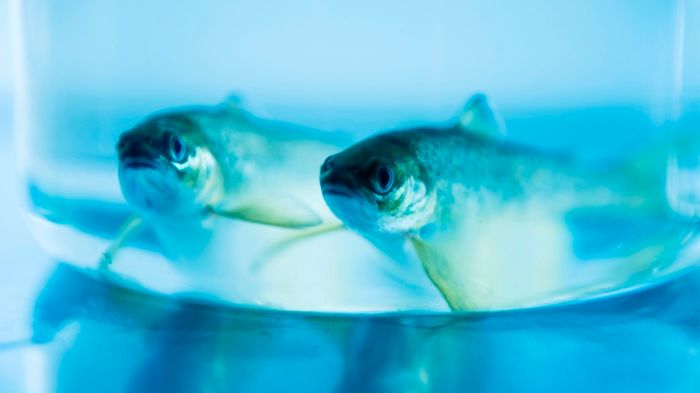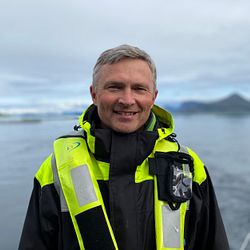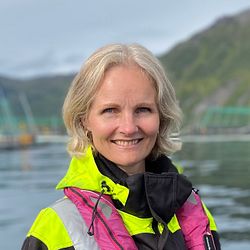
News -
Why we screen our brood stock fish against pathogens
Pathogens causing disease come from the wild and impact wild and farmed fish. In Cermaq we screen our brood-stock to ensure that the eggs put into our fresh-water facilities are free from pathogens. Read about our screening programs.
Any salmon farmer strives to avoid diseases. Infectious diseases are caused by pathogens. All pathogens origins in the wild, some are native in the area (endemic), others may be introduced to an area with eggs or fish (exotic).
Pathogens spreads principally in two ways, horizontally from one fish to another fish in tanks (on land), in the sea, or vertically from parent to offspring. Many pathogens may spread both ways.
- We have responsibility to ensure that the fish we transfer from our on-land smolt facilities to the sea do not bring with them pathogens. And because of this we have screening programs in place in our operations in Chile, Canada and Norway to prevent that we transfer pathogens through smolt transfer to sea, says R&D Director Olai Einen.
In Cermaq we screen for the following vertically transmittable pathogens:
| Pathogen | Disease caused by the pathogen | Norway | Canada | Chile |
| ISAV including HPR0 * | Infectious Salmon Anemia | X | X | X |
| Renibacterium salmoninarum. | Bacterial kidney disease (BKD) | X | X | |
| PRV (Piscine Orthoreovirus) | Specific PRV-strains in Norway and Chile can cause Heart and Skeletal Muscle Inflamation (HSMI) | X | X | |
| Infectious pancreatic necrosis-virus (IPNV) | Infectious pancreatic necrosis | X | X | |
| Flavobacterium psychrophilum | Flavobacteriosis (RTFS) Rainbowtrout | X | ||
| Infectious Haematopoetic Necrosis virus (IHNv) | Infectious haematopoetic necrosis | X | ||
Viral Hemorrhagic Septicemia virus (VHSv) |
Hemorrhagic septicemia | X |
*HPR0 is a non-virulent form of ISA-virus
All screening is risk-based: If a pathogen is not screened, it may be either because it is not present in the area or because it is not considered a threat in that area. Nevertheless, we are screening for PD in Chile, although it is never found there, because the consequences of an outbreak are considered so high that it is worth it.
Pathogens may be transferred from parent to offspring in two ways, see illustration below. If there is a false vertical transmission the eggs may be made free of pathogens through thourough disinfection procedures og the eggs.

Screening of brood stock fish will not eradicate pathogens endemic in the sea. This is particular the case in BC where the stocks of wild salmon outnumbers the farmed salmon several hundred times. Still, screening combined with proper Area Management and fallowing can gradually reduce the prevalence of these pathogens in an area. Thus over time we expect to see less disease outbreaks due to these pathogens in our fish farms returning towards a more balanced situation - where pathogens do exist in the wild.


